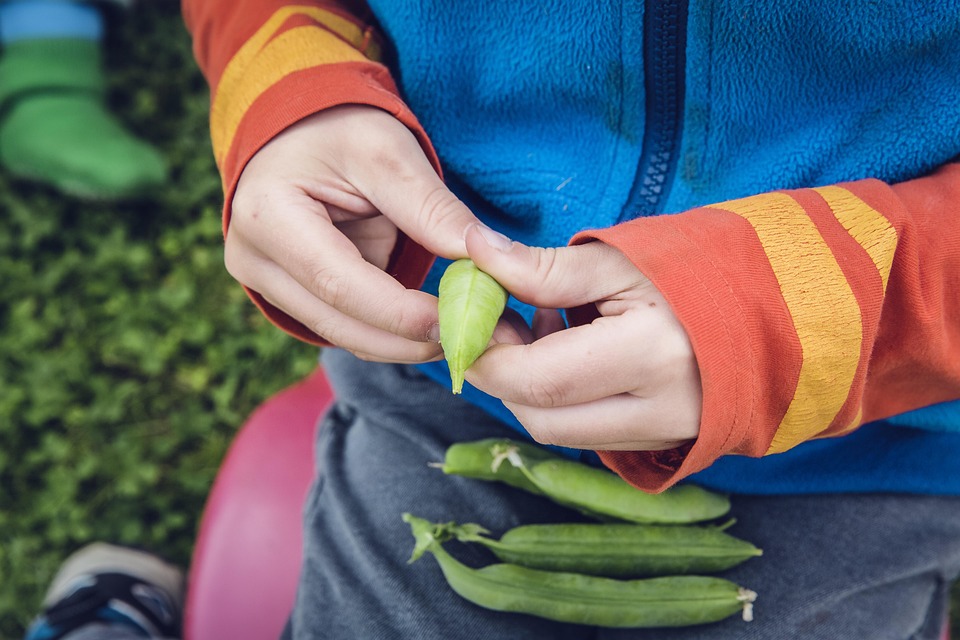Green Thumbs: Cultivating a Sustainable Garden for a Greener Future
As concerns about climate change and environmental sustainability continue to grow, more and more people are turning to eco-friendly practices in their everyday lives. One simple way to make a positive impact on the planet is by cultivating a sustainable garden. Whether you have a small balcony or a sprawling backyard, there are plenty of ways to create a green oasis that supports biodiversity, conserves water, and reduces your carbon footprint. In this article, we’ll explore the benefits of sustainable gardening, offer tips for getting started, and provide practical advice for maintaining a thriving garden that will benefit both you and the planet.
The Benefits of Sustainable Gardening
There are numerous benefits to cultivating a sustainable garden. Not only does it help protect the environment, but it also promotes biodiversity, conserves water, and provides a beautiful and peaceful space for relaxation and recreation. Sustainable gardening practices can also help reduce your carbon footprint by minimizing the use of harmful chemicals and synthetic fertilizers, as well as by encouraging the use of organic materials and natural pest control methods.
Promoting Biodiversity
One of the key benefits of sustainable gardening is its ability to promote biodiversity. By creating a diverse range of plants and habitats in your garden, you can attract a variety of beneficial insects, birds, and other wildlife that help maintain a healthy ecosystem. This, in turn, can help control pests, reduce the need for chemical pesticides, and create a more resilient and sustainable garden environment.
Conserving Water
Another important benefit of sustainable gardening is its ability to conserve water. By choosing drought-tolerant plants, installing rain barrels or other water harvesting systems, and using mulch to retain moisture in the soil, you can reduce the amount of water needed to maintain your garden. This not only helps save money on your water bill, but also reduces the strain on local water resources and promotes a more sustainable approach to gardening.
Reducing Your Carbon Footprint
By minimizing the use of harmful chemicals and synthetic fertilizers, as well as by composting organic materials and using natural pest control methods, sustainable gardening can help reduce your carbon footprint and promote a more environmentally friendly approach to gardening. This can have a positive impact on the planet by reducing the release of greenhouse gases and other pollutants into the atmosphere, as well as by promoting a more sustainable and eco-friendly way of living.
Getting Started
Now that you understand the benefits of sustainable gardening, it’s time to get started on creating your own green oasis. Here are some tips to help you get started:
Assess Your Space
Before you start planting, take some time to assess your space and determine what plants will thrive in your garden. Consider factors such as sunlight, soil type, and water availability, and choose plants that are well-suited to your specific conditions. This will help ensure that your garden is successful and sustainable in the long run.
Choose Native Plants
One of the best ways to promote biodiversity in your garden is by choosing native plants that are well-adapted to your local climate and soil conditions. Native plants are often more resilient and require less maintenance than non-native species, making them an ideal choice for sustainable gardening. They also provide important habitat and food sources for local wildlife, helping to support a healthy and diverse ecosystem.
Use Organic Materials
When it comes to soil amendments and fertilizers, opt for organic materials such as compost, manure, and mulch. These natural materials provide essential nutrients to your plants, improve soil health, and help retain moisture in the soil. They also promote a healthy and balanced ecosystem by supporting beneficial microorganisms and reducing the need for synthetic chemicals that can harm the environment.
Maintaining Your Sustainable Garden
Once your garden is established, it’s important to maintain it properly to ensure its long-term sustainability. Here are some tips for maintaining a healthy and thriving sustainable garden:
Practice Water Conservation
One of the most important aspects of sustainable gardening is water conservation. To reduce water usage in your garden, water plants in the early morning or evening to minimize evaporation, install a drip irrigation system to deliver water directly to the roots, and use mulch to retain moisture in the soil. You can also collect rainwater in a barrel or other container to use for watering your garden, reducing your reliance on municipal water sources.
Implement Natural Pest Control
Instead of relying on chemical pesticides, try using natural pest control methods to keep pests at bay. This can include planting pest-repellent plants, attracting beneficial insects such as ladybugs and lacewings, and using physical barriers like row covers to protect your plants. You can also make your own homemade pest control sprays using ingredients like neem oil, garlic, and soap to safely and effectively control pests without harming the environment.
Compost Organic Waste
Composting is a great way to reduce waste, improve soil health, and promote a sustainable garden environment. By composting your kitchen scraps, yard waste, and other organic materials, you can create nutrient-rich compost that can be used to fertilize your plants and improve soil structure. This not only reduces the amount of waste that ends up in landfills, but also helps support a healthy and productive garden ecosystem.
Conclusion
Cultivating a sustainable garden is not only good for the environment, but also for your own well-being. By promoting biodiversity, conserving water, and reducing your carbon footprint, you can create a beautiful and eco-friendly space that benefits both you and the planet. With the tips and advice provided in this article, you can start your own sustainable garden today and help build a greener future for generations to come.
Remember, every little step towards sustainability counts, so start small and gradually incorporate more eco-friendly practices into your gardening routine. Together, we can make a difference and create a more sustainable and environmentally friendly world for all.


















































